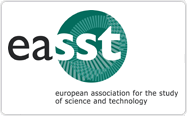Following Misdirection and Multiple Malarias in Santo Domingo, Dominican Republic
DOI:
https://doi.org/10.23987/sts.110326Abstract
Misdirection can be understood as a social process of pursuing certain kinds of evidence while drawing attention away from others. This paper explores misdirection in the context of malaria elimination in the Dominican Republic. Malaria has recently exploded in impoverished spaces of the capital, Santo Domingo. Using ethnographic material collected from 2018-19, three perspectives trace the social co-production of misdirection. First, a young man afflicted with fever and weakness understands his ailment as “stress sickness” brought on by poverty and structural violence. Second, clinicians focus on the results of hemograms to diagnose febrile patients, creating a pattern of misdiagnosis. Lastly, malaria policies and financing demand more indicator data, creating the appearance of a neutral reality separate from local histories and political tensions. In the end, misdirection obscures malaria’s multiplicity, or the alternative realities that arise among the social actors who live with and respond to the problem of malaria in the capital. Attention to social-material practices breaks out of the narrow conceptualization of malaria as ‘only’ a parasitic disease and reveals its other, multiple manifestations that require more than techno-biomedical solutions alone.
Downloads
Published
Issue
Section
License
Copyright (c) 2022 Hunter Keys

This work is licensed under a Creative Commons Attribution 4.0 International License.





